Health
Blood banks searching for Type O blood amid emergency shortage: 'We always have a need'

Las Vegas, Nevada – The nation is facing an emergency blood shortage, according to the American Red Cross.
Extreme heat and recent natural disasters are affecting the blood supply, the nonprofit says.
Not only is there a shortage of donations across the country, but there is also a specific need for Type O blood, according to Vitalant, an Arizona-based nonprofit that operates blood banks nationwide.
YOUNG GIRL SURVIVES CANCER THANKS TO LITTLE SISTER’S LIFESAVING DONATION: ‘A PERFECT MATCH’
To help meet the need, Vitalant is holding more than 50 blood drives this month in parts of Nevada.
“My best friend almost died in a car accident when I was, like, 19 or 20 — so I’ve seen the power of blood donations,” blood donor Nina Duren told Fox News.
The nation is facing an emergency blood shortage, according to the American Red Cross. (iStock)
Duren has been donating blood a couple of times a year for the last 15 years.
“It’s a life-saving thing I can do that costs me nothing but an hour of my time,” she said.
NEW FDA BLOOD DONATION GUIDELINES EASE RESTRICTIONS FOR GAY AND BISEXUAL MEN
Another donor, Sheila Macdonell Spiess, is a retired trauma nurse. In the 47 years of her nursing career, she said there has always been a need for blood.
“People are always in car accidents, stabbings, unfortunately, or gunshot wounds, or [there are] people with leukemia,” she told Fox News.
“We always have a need. It doesn’t matter what time of year.”

There is a specific need for Type O blood, according to Vitalant, an Arizona-based nonprofit that operates blood banks nationwide. (iStock)
As blood banks across the nation are running low on blood, some are placing an emphasis on one blood type over others.
“Type O is known as a universal donor,” said MacDonell Spiess. “So, if you came in, and we needed to give you blood right away … it would be O, because we don’t know if you’re A or B or AB. So we would give you O, because that’s called the universal type.”
Vitalant’s Type O supply hit an 18-month low in July.
Without Type O blood readily available, people in need may be turned away.
The organization is now working to build up a constant four-day supply.
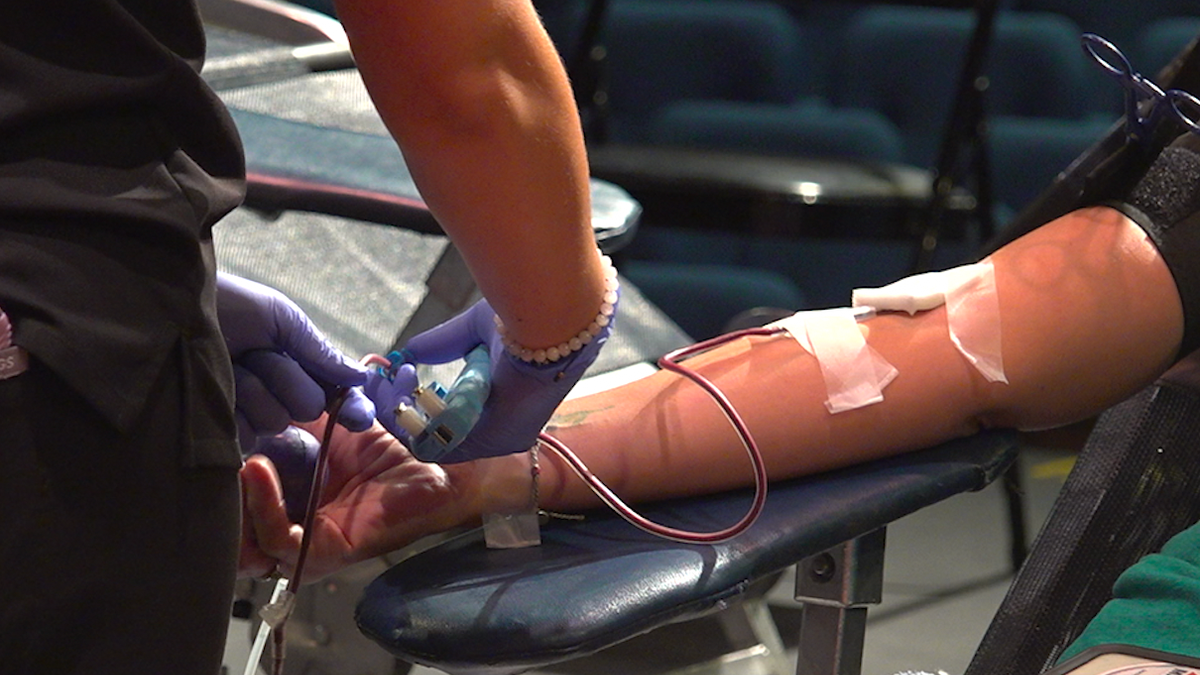
A donor squeezes a stress ball while donating blood. As blood banks across the nation are running low on blood, some are placing an emphasis on one blood type over others. (Sunny Tsai/Fox News)
“If you just keep lowering the number and lowering the number … that just impacts how many people you can help, and honestly, no doctor wants to have to make that choice of saying you can’t be helped today,” Mike Doria, communication manager of Vitalant’s Southwest division, told Fox News.
CLICK HERE TO SIGN UP FOR OUR HEALTH NEWSLETTER
The American Red Cross’ entire inventory has shrunk by 25%, and the supply of donors has not kept up with the need.
“As an example, a trauma victim may require dozens of blood products,” Dr. Baia Lasky, American Red Cross’ divisional chief medical officer, told Fox News.

The American Red Cross’ entire inventory has shrunk by 25%, and the supply of donors has not kept up with the need. (Getty Images)
“And studies have demonstrated that every minute of delay in blood products in these situations will increase the risk of death by 5%.”
That means having blood available for donation at hospitals is “absolutely critical” to give people a chance of survival after emergencies, she added.
For more Health articles, visit www.foxnews/health
Blood cannot be stored long-term, which means nonprofits like American Red Cross and Vitalant consistently need donors.

Health
Gender surgeries, migraine tips, 'Zika-like' virus and more top health stories
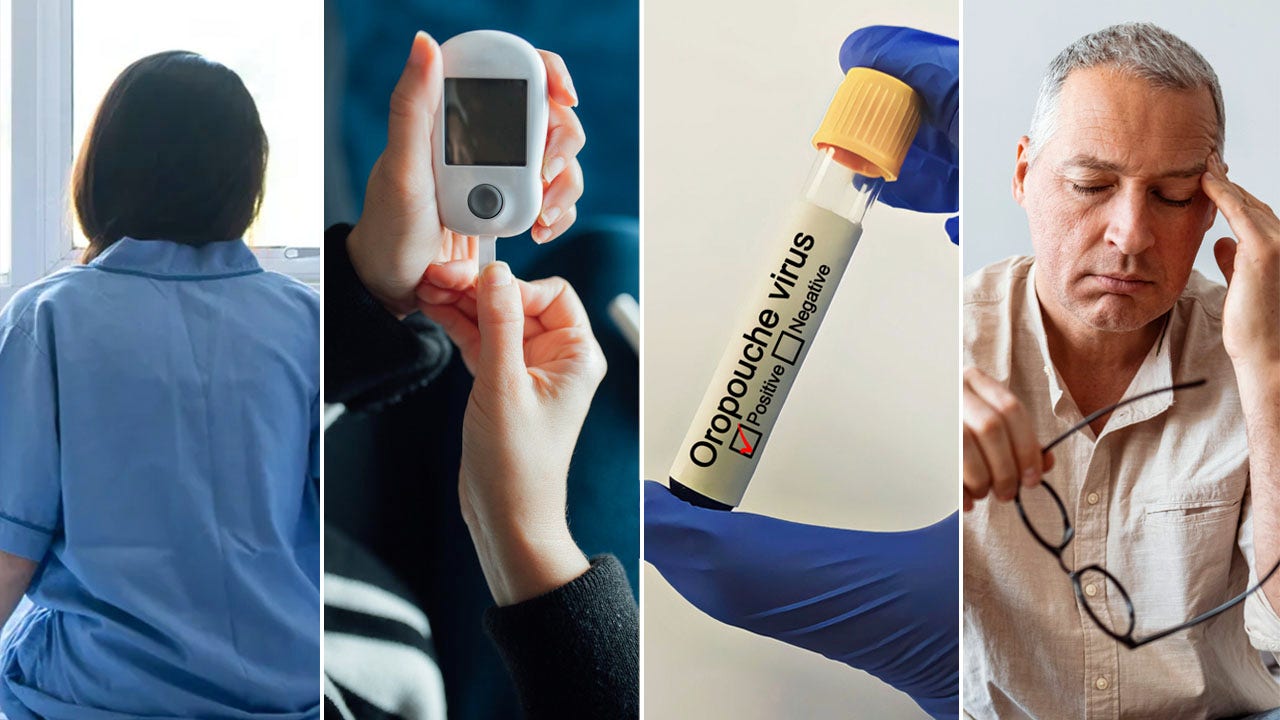
Fox News Digital publishes an array of health pieces all week long to keep you in the know on key wellness topics: disease prevention, nutrition, medical research, health care and more. Personal stories of people and families overcoming great health obstacles are also published.
Check out some of the top stories of the week in Health that you may have missed or have been meaning to check out.
These are just a few of what’s new. There are many more to see at Fox News Health.
CLICK HERE TO SIGN UP FOR OUR HEALTH NEWSLETTER
Here are eight stories worth knowing.
1. Breast removal surgery performed on girls under age 12
Since 2017, hundreds of females age 12 and younger with gender dysmorphia have undergone double mastectomies, according to analysis released by the Manhattan Institute this week — and that number may be considerably higher. The risks of this “drastic intervention” are noted by experts. Click here to get the story.
Psychologists point out the mental health consequences of certain types of surgery on young women. (iStock)
2. Top 10 causes of death in US
The Centers for Disease Control and Prevention has released the primary killers in the country. Find out where heart disease, cancer and COVID fall on the list. Click here to get the story.

Heart disease was once again the top cause of death in 2023. (iStock)
3. ‘Zika-like’ virus spreads into Europe
The Oropouche virus is transmitted through bites by mosquitoes and midges, with sloths and birds acting as hosts. Check out symptoms, treatment and prevention tips. Click here to get the story.

As of the end of July, 19 cases of the Oropouche virus had been reported in Europe, with 12 in Spain, five in Italy and two in Germany, per reports. (iStock)
4. Avoiding tragedy on the water
Alcohol was involved in 17% of boating fatalities, according to new data from the U.S. Coast Guard. Experts reveal tips on preventing these tragedies. Click here to get the story.

Alcohol is known to cause impaired judgment, balance, coordination and reaction time — all of which can put boat operators and their passengers at risk for accidents and fatalities. (iStock)
5. Screen time limits benefit kids
Kids who had only a certain number of hours of screen time each week showed improvements in mental health, communication and behavioral difficulties. Click here to get the story.

In 2023, the U.S. Surgeon General released an advisory related to social media use among youth, emphasizing mental health concerns. (iStock)
6. What to do when a migraine hits
A doctor notes the most important steps to take to reduce headache pain and curb anxiety about the condition. Click here to get the story.

One out of every seven people around the world suffers from migraines, statistics show. (iStock)
7. Lance Bass announces Type 1.5 diabetes diagnosis
Here’s what to know about the condition, which is often mistaken for type 2 diabetes, experts say. Click here to get the story.

Pop singer Lance Bass recently shared on social media that he has type 1.5 diabetes, also known as latent autoimmune diabetes in adults (LADA). (Getty Images)
8. Chiropractic cure for colic in babies?
An Ohio couple claims that chiropractic adjustments “transformed” their fussy infant. Doctors weigh in on the potential benefits and risks of performing the treatment on babies. Click here to get the story.
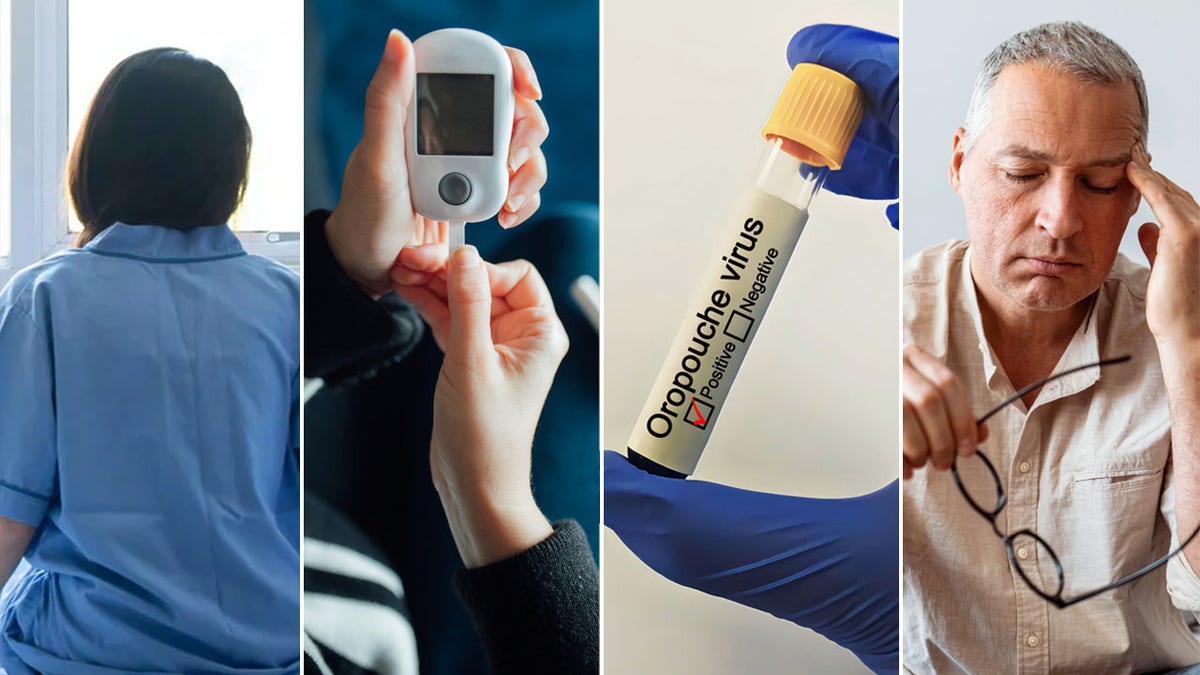
This week’s top health stories included risky surgeries, a little-known type of diabetes, a viral outbreak and migraine control tips. (iStock)
Health
Ketamine dangers in spotlight after arrests made in actor Matthew Perry’s death

Recent arrests made in actor Matthew Perry’s death have cast new light on the dangers of ketamine abuse.
Perry’s Oct. 28th death — which initially appeared to be a drowning in a hot tub at his California home — was later attributed to the “acute effects of ketamine,” as ruled by the Los Angeles County Department of Medical Examiner.
Several people are now charged in connection with the 54-year-old actor’s overdose death — including Perry’s assistant, Kenneth Iwamasa, who allegedly administered excessive amounts of ketamine — as well as multiple physicians and dealers, who are said to have provided the drug.
MAIL-ORDER KETAMINE INJECTIONS CAN BE ‘EXTREMELY DANGEROUS,’ WARNS DR. MARC SIEGEL
On the day of Perry’s death, the “Friends” star received three ketamine injections, according to information in the assistant’s plea agreement.
Here’s a deeper dive into ketamine and the issues around it.
Recent arrests made in actor Matthew Perry’s death have cast new light on the dangers of abusing ketamine. (Getty Images)
What is ketamine?
Intended for use as an anesthetic to be handled by medical doctors and veterinarians, ketamine is also used illegally as a recreational drug.
The Alcohol and Drug Foundation (ADF) describes ketamine as a “dissociative drug,” which means it causes people to feel “separated or detached” from their bodies or physical surroundings.

Perry’s Oct. 28th death — which initially appeared to be a drowning in a hot tub at his California home — was later attributed to the “acute effects of ketamine.” ( Frederick M. Brown/Getty Images)
For some, it can cause hallucinations and alter people’s thoughts and emotions, according to the ADF.
“Ketamine is in the PCP (phencyclidine) family,” Dr. Marc Siegel, senior medical analyst for Fox News and clinical professor of medicine at NYU Langone Medical Center, told Fox News Digital.
(PCP is a dissociative, mind-altering drug that may lead to hallucinations.)
MARIJUANA USE AMONG PREGNANT WOMEN IS LINKED TO LOW BIRTH WEIGHT, STUDY FINDS
The off-label use of ketamine has “skyrocketed” in recent years, “despite limited data supporting the safety and efficacy of that practice,” according to a report from Yale School of Medicine.
The drug is usually sold as a colorless, odorless liquid or as a white or off-white powder, according to the National Drug Intelligence Center (NDIC) website.

Five people were arrested and charged in connection with Matthew Perry’s death, including assistant Kenny Iwamasa and Jasveen Sangha, aka “The Ketamine Queen.” (Getty Images/MEGA)
When used in a powder or liquid form, it is often mixed with beverages or smoked with marijuana or tobacco.
The powder form can also be snorted or pressed into tablets.
As a liquid, ketamine can be injected, the NDIC states.
Ketamine approved for depression in health care setting
In 2019, the U.S. Food and Drug Administration (FDA) approved ketamine in a nasal spray format (Spravato, or S-ketamine) for treatment-resistant depression and suicidal ideation.
It is intended to be used in combination with antidepressant pills only under the supervision of a medical professional.
“S-ketamine is regulated very tightly,” the Yale report stated. “It has to be delivered intranasally, in a certified health care setting under the supervision of a health care professional, and patients must remain in the facility for two hours after dosing.”
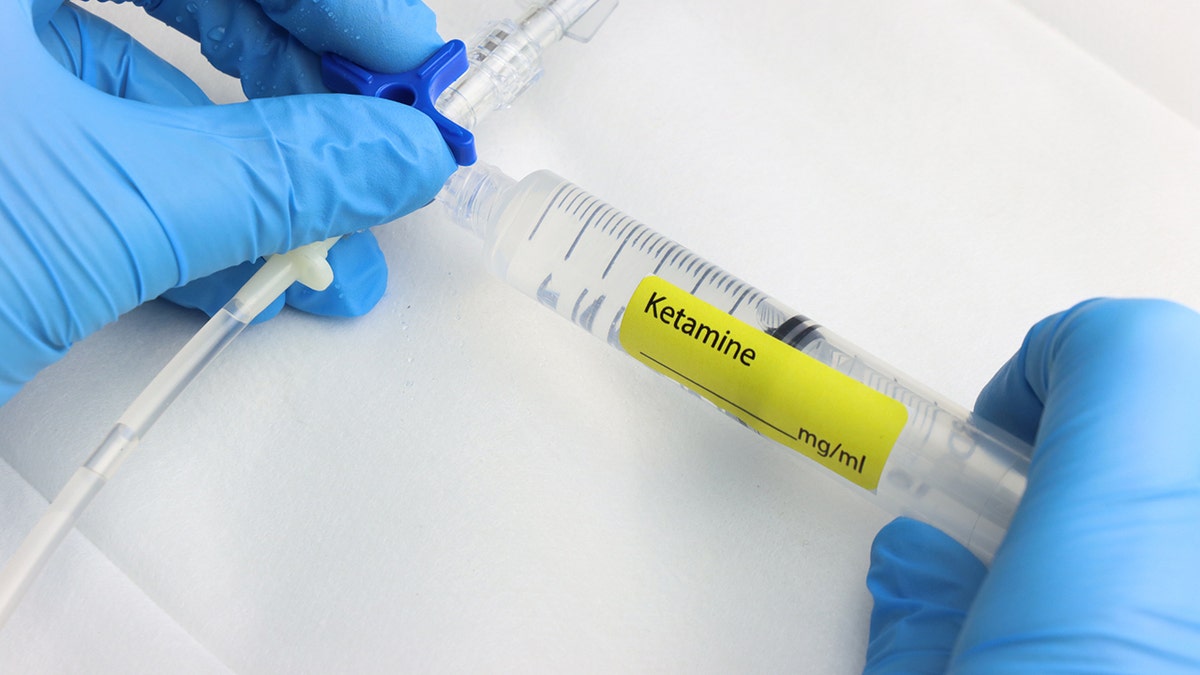
Ketamine is intended to be used in combination with antidepressant pills only under the supervision of a medical professional. (iStock)
Ketamine is more commonly used for treatment of severe depression and for pain management, according to Siegel.
CLICK HERE TO SIGN UP FOR OUR HEALTH NEWSLETTER
Dr. Justin Gerstner, psychiatrist and chief medical officer at Ellie Mental Health in Minnesota, uses ketamine therapy in his own practice, saying the response from clients has been “great,” as Fox News Digital previously reported.
Ketamine therapy eliminates the need for patients to take medication every day, according to the doctor.

The drug is usually sold as a colorless, odorless liquid or as a white or off-white powder, according to the National Drug Intelligence Center (NDIC) website. (Getty Images)
Gerstner’s practice usually administers ketamine to clients via IV injection in two- to three-hour sessions, partnered with psychotherapy before and after treatment, he said. While ketamine can work as a “really powerful anti-depressant and anti-suicidal drug,” it is “not the right answer for everybody or everything,” he previously told Fox News Digital.
When does ketamine become deadly?
There are risks and limitations involved, Gerstner warned — including the potential for ketamine to be abused.
There isn’t too much regulation surrounding how ketamine treatments are administered, Gerstner noted, since the drug was previously approved for anesthetic use.
For more Health articles, visit www.foxnews/health
“The field is wide open, and it’s a little bit like the Wild West,” he said. “This is a really powerful medication and the way that it’s used can vary quite drastically.”
At high doses, the drug can cause adverse health issues that affect cardiovascular, respiratory and neurologic function, which can be fatal, said the American Addiction Centers website.
“Common causes of overdose death include excess sedation, respiratory failure, low blood pressure, cardiac arrhythmia, coma and seizures.”
Some of the risks include elevated blood pressure, difficulty breathing, amnesia, seizures, addiction, problems with judgment and coordination, and a lower urinary tract irritation called ulcerative cystitis, according to the same source.
“Common causes of overdose death include excess sedation, respiratory failure, low blood pressure, cardiac arrhythmia, coma and seizures,” said Siegel.
In Perry’s case, the report stated that given the high levels of ketamine found in his blood, “the main lethal effects” from the ketamine included “cardiovascular overstimulation and respiratory depression.”
Angelica Stabile of Fox News Digital contributed reporting.
Health
High blood pressure and Alzheimer’s disease could go hand in hand, study finds

The risk of Alzheimer’s disease could escalate along with high blood pressure, according to a new study.
Published in the medical journal Neurology, the research found that people age 60 and older who have untreated high blood pressure may be more likely to develop the common dementia type.
Although the results don’t prove that untreated high blood pressure causes the disease, they do show an association, the American Academy of Neurology stated in a press release.
ALZHEIMER’S AND PARKINSON’S RISK IS HIGHER FOR PEOPLE WITH BODY FAT IN TWO SPECIFIC AREAS
Study author Matthew J. Lennon, M.D., PhD, of the University of New South Wales in Australia, wrote in a statement that high blood pressure is a “leading cause of stroke and cerebrovascular disease, and yet it can be controlled with medication, reducing a person’s risk of these diseases.”
The study found that people age 60 and older with untreated high blood pressure may have an increased risk of Alzheimer’s. (iStock)
While previous research has found that taking blood pressure medications can reduce dementia risk, according to Lennon, less is known about the condition’s impact on Alzheimer’s risk.
“Our meta-analysis looked at older people and found that not treating blood pressure may indeed increase a person’s risk,” he said.
BOOST BRAIN HEALTH AND SLOW MENTAL AGING WITH 10 INTRIGUING TIPS FROM LONGEVITY EXPERTS
The researchers analyzed 31,250 people averaging 72 years old who were involved in studies measuring cognitive change and dementia diagnosis over time, the release stated.
After four years, 1,415 of those individuals developed Alzheimer’s disease.
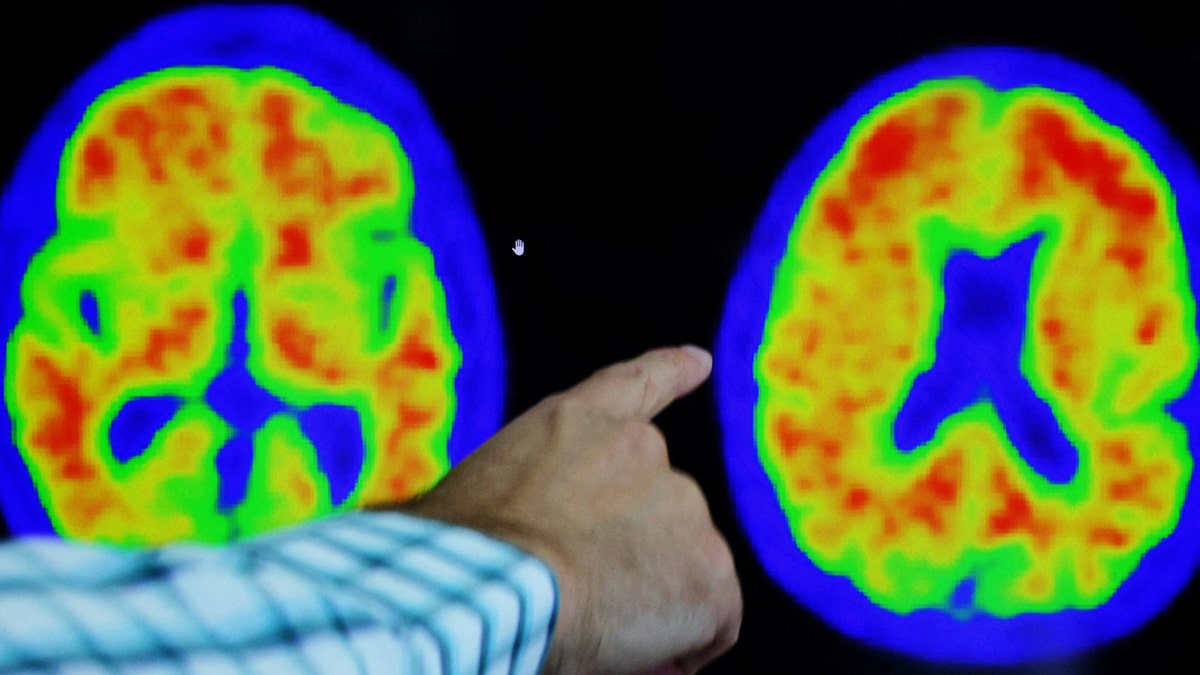
A doctor points at potential evidence of Alzheimer’s disease spotted in a PET scan at Brigham And Women’s Hospital in Boston on March 30, 2023. (REUTERS/Brian Snyder/File photo)
People with untreated high blood pressure had a 36% increased risk of Alzheimer’s compared to those without the condition, the study found.
They had a 42% increased risk in comparison to those with high blood pressure who were taking blood pressure medication.
“This relationship is not altered by increasing age, which indicates that even those in their 70s and 80s are at significantly lower risk of AD if hypertension is treated,” Lennon told Fox News Digital in an email.
NEW BLOOD PRESSURE PROCEDURE IS ‘GAME-CHANGING’ FOR PEOPLE WITH UNCONTROLLED HYPERTENSION, SAY DOCTORS
“These results suggest that treating high blood pressure as a person ages continues to be a crucial factor in reducing their risk of Alzheimer’s disease,” he added.
The researchers also found that there were no significant risk differences in the effects of blood pressure or medication use across different sexes or racial groups.
“This is a very promising result, as it suggests that optimal care for one group will be similar for others,” Lennon noted.
“Treating high blood pressure as a person ages continues to be a crucial factor in reducing their risk of Alzheimer’s disease.”
Dr. Marc Siegel, a professor of medicine at NYU Langone Medical Center and Fox News senior medical analyst, reacted to these findings in a conversation with Fox News Digital.
Alzheimer’s involves “neuroinflammation and the formation of plaques, which interfere with neuronal communication,” noted Siegel, who was not involved in the study.
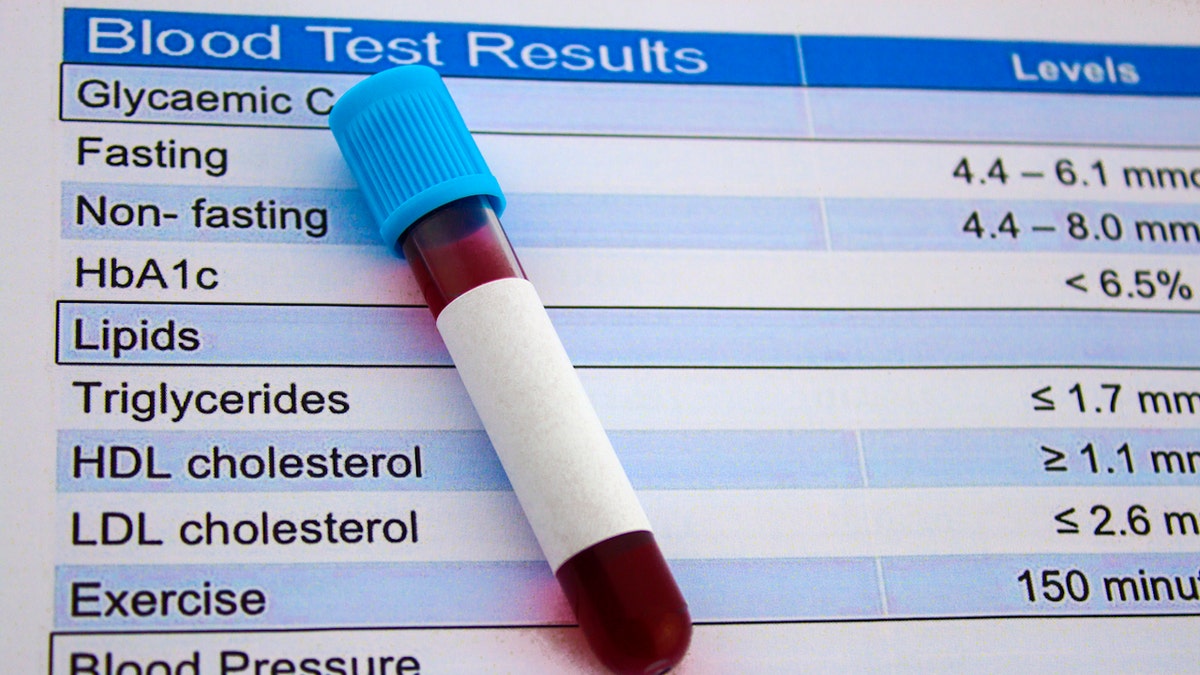
“We have long known that high blood pressure, high cholesterol and high glucose levels — as well as obesity, smoking and alcohol use — contribute to increased risk of heart attack, stroke and vascular dementia,” a doctor told Fox News Digital. (iStock)
Added the doctor, “High blood pressure may accelerate this development by interfering with oxygen and blood supply to the nerve cells of the brain in some areas — especially the frontal lobe, which is affected.
Dr. Elizabeth Landsverk, geriatric medicine physician and author in California, was not involved in the study but said she was not surprised by the findings.
CLICK HERE TO SIGN UP FOR OUR HEALTH NEWSLETTER
“We have long known that high blood pressure, high cholesterol and high glucose levels — as well as obesity, smoking and alcohol use — contribute to increased risk of heart attack, stroke and vascular dementia,” she told Fox News Digital.
“This new study also finds a decreased risk of Alzheimer’s disease (amyloid proteins deposing the brain) among those treated for hypertension.”
Potential study limitations
The researchers used data from 14 different longitudinal studies from around the world, Lennon noted, which means there may be some variability in the way they define dementia and high blood pressure.
“Most of the studies also did not report mortality data, and thus our analysis did not account for the competing risks of dementia and death,” the researcher told Fox News Digital.

“These results suggest that treating high blood pressure as a person ages continues to be a crucial factor in reducing their risk of Alzheimer’s disease,” a study researcher said. (iStock)
Factors like socioeconomic status, health literacy, access to medications, poorly managed medical conditions, and depression and other mental illnesses could also confound the association between hypertension status and dementia risk, Lennon added.
“Because the study is taken over a long period of time, any number of outside variables can alter the results, making it less reliable,” Landsverk noted.
Hypertension is extremely common, affecting two-thirds of those over age 65 and around 1.3 billion people worldwide, Lennon noted.
“In the vast majority of cases, it is clinically silent, causing no symptoms until you present with a heart attack, a stroke, or — as we now have shown — dementia,” Lennon said.
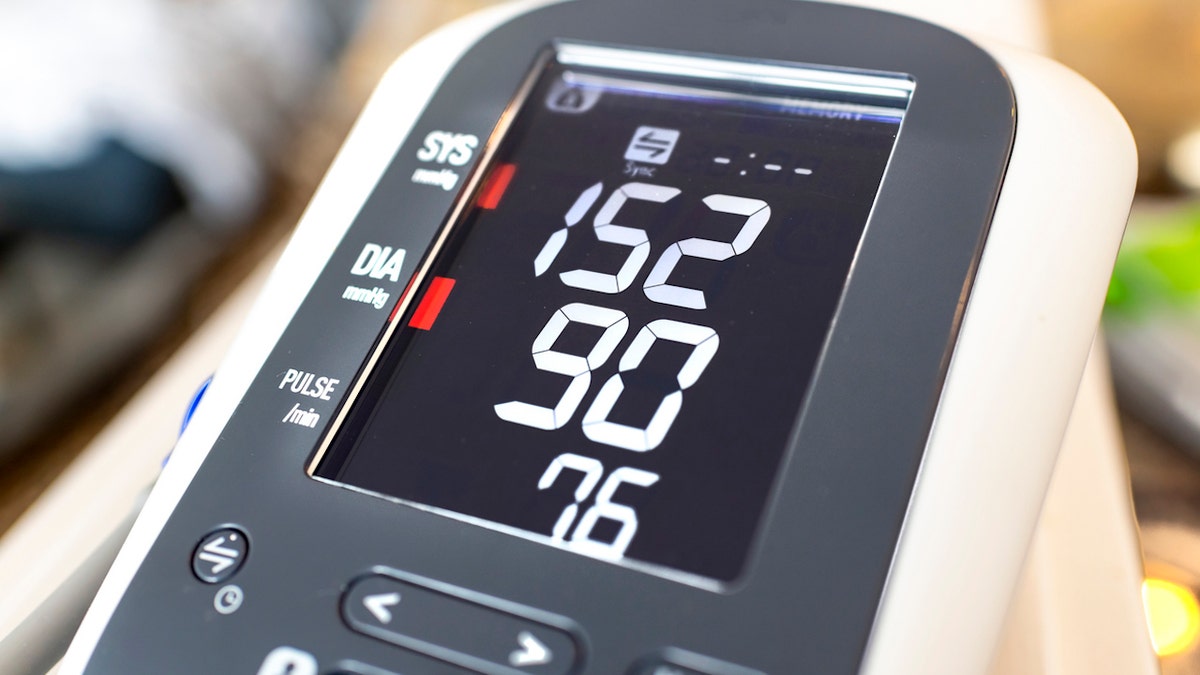
Hypertension is extremely common, affecting two-thirds of those over the age of 65 and around 1.3 billion people worldwide. (iStock)
Only 28% of those with high blood pressure have it under adequate control, he noted.
“While you might not feel the consequences of high blood pressure immediately, it is really important that you keep a close eye on it and bring it under control if you want to maximize your chance at a longer, happier, healthier life,” Lennon added.
For more Health articles, visit www.foxnews/health
For those who are obese, Landsverk added, losing weight is the fastest way to decrease risk factors.
“In general, the healthiest approach is adopting a plant-based diet and exercising 30 minutes each day to reduce your risk of heart attack, stroke, dementia and now Alzheimer’s disease by as much as 40%,” she advised.
-

 Ohio4 days ago
Ohio4 days agoOhio taxpayers sent families $966 million for private school tuition: Capitol Letter
-

 News1 week ago
News1 week agoNewly released video shows chaos and confusion after Trump assassination attempt
-

 World6 days ago
World6 days agoWhat could an EU Commissioner do to tackle the housing crisis?
-

 Politics1 week ago
Politics1 week agoTrump campaign frames election is 'complete contrast' against Harris record
-

 Politics1 week ago
Politics1 week agoTim Walz 'misspoke' about using weapons ‘in war,' Harris campaign says: report
-

 Politics1 week ago
Politics1 week agoProgressive women's groups silent on second gentleman Doug Emhoff's affair
-

 Politics1 week ago
Politics1 week agoBiden hunkers down at Delaware beach house after only public event of the week
-

 News1 week ago
News1 week agoPhotos: Family of Michael Brown Jr. marches on Ferguson 10 years later














